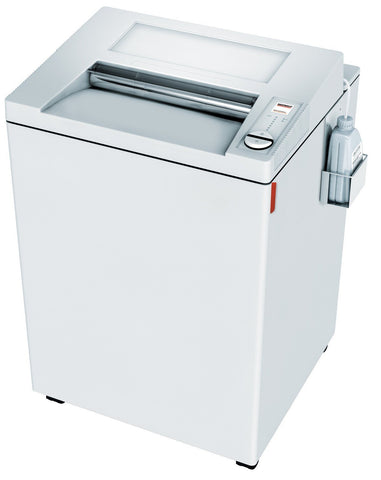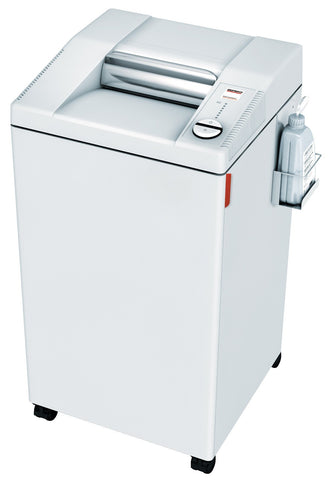Many small business owners mistakenly believe that data security and breaches aren't a big problem.
After all, they're the little guys. Why would anyone come after them?
It turns out, as of 2017, nearly half of all cyber attacks target small businesses. They're much more vulnerable than the prominent organizations, and often lack the resources and the capability to defend themselves adequately.
So does this mean that small businesses should just admit defeat and hope and pray that they don't get hit?
Far from it.
There are many simple but very critical steps that these companies can take to secure data. Many of these suggestions don't require a significant financial investment and can be implemented very quickly.
Read on to learn about ten ways that small businesses can efficiently secure data.
1. Physically Secure Data
The easiest way to build a culture of data security is to beef up the physical security infrastructure within the office premises. Simple steps like locking rooms, filing cabinets, and providing employees with lockers can go a long way in ensuring data protection.
Make sure that each employee has a safe space to store their laptops and other electronic devices when they're not at their desks.
Use access cards to control movement within office premises.
Hire a security team to routinely patrol the office during the early morning and late evening hours, when the office is mostly empty.
2. Background Checks
In most large corporations, background checks are the norm, but small businesses sometimes overlook this crucial step in the hiring process.
A simple background check serves as an insurance policy against allowing the wrong elements into your organization.
3. Destroy Sensitive Documents
It is essential that you destroy sensitive materials once they have served their purpose.
However, many employees fail to do so. Some people leave critical memos and folders lying at their desks, while others just toss it in their trash can.
It's not enough to dump it in the recycle bin. It's not even enough to rip it down the middle with a token tear.
A committed snoop can quickly put together a few fragments of paper to source sensitive information. Use a high-quality shredder to destroy important documents.
4. Network Security
Wireless networking is exceptionally convenient and supports mobility and flexible office spaces.
However, it can wreak havoc from a security standpoint if it is unprotected.
Invest in upgrades to your networking infrastructure and especially for wireless devices.
Promote the use of VPNs and secure servers.
5. Password Protection
Build a culture of data security by requiring all employees to protect sensitive documents with passwords.
Specify criteria for strong passwords, with combinations of letters, numerals, symbols, uppercase, and lowercase.
Did you know that hackers can use brute-force methods to crack a simple four-letter password in under 1 second?
When it comes to passwords, size matters. Encourage the use of longer passwords to drive further security and secure data.
6. Update Software
As computing power increases each year, so do the abilities and tools of hackers.
Sofware from earlier years begins to show it's age, and can no longer keep up with the increasing power of hacking algorithms. The companies who build the software you use are continually adding features, fixing bugs, and closing gaps in security.
Keep downloading and installing those updates as soon as they become available.
7. Pay For Quality
Small businesses don't have always have the deep pockets of their larger counterparts, and IT systems, hardware, and software are expensive.
However, as tempting as it may be to save a few bucks and source cheap quality equipment and free software, the risk is just not worth it. Poor quality equipment will break down frequently, and you'll rack up additional costs for unwanted repairs and maintenance.
Software that is sourced from torrents and other wares sites carries a high risk of malware, viruses, and other unpleasant add-ons. Don't try to save a few pennies only to get exposed to massive losses because of a poor choice in purchasing.
8. Backup Often
Even if you don't get hit with a hack or a data breach, you could still lose sensitive data to a faulty network or a system crash.
Perform routine and regular backups of all your confidential information so that you limit your exposure from lost data in case of a mishap.
9. Hardware Encryption
Ensure that all electronic devices are encrypted before you hand them over to employees.
Encryption ensures that any stolen equipment will be virtually useless unless the encryption is unlocked with a code, reducing the risk of data loss after a theft.
10. Move to the Cloud
Moving secure data into the cloud has many advantages.
You no longer have to store physical infrastructure on your premises, and therefore you reduce the chances of data theft through a physical break-in.
You also cut costs by not having to invest in your own server and storage solution. Most cloud storage providers offer vast quantities of storage for fractional pricing.
You also leave data security to the experts. Large organizations that operate in the cloud invest billions of dollars into their security infrastructure, so customers like you can sleep peacefully at night.
Moving Forward
There are a number of things that small businesses can do to keep their data secure, and it all begins in the office. Keeping the workspace free of confidential documents that ought to be destroyed is an easy first step.
When it comes to shredding documents, it's essential that you invest in the appropriate shredding equipment for your needs. Head on over to our FAQ section to learn about the different options that are available to you.
If you'd like assistance with deciding what the most appropriate solution might be, contact us.
We look forward to helping you secure your business's valuable data.




